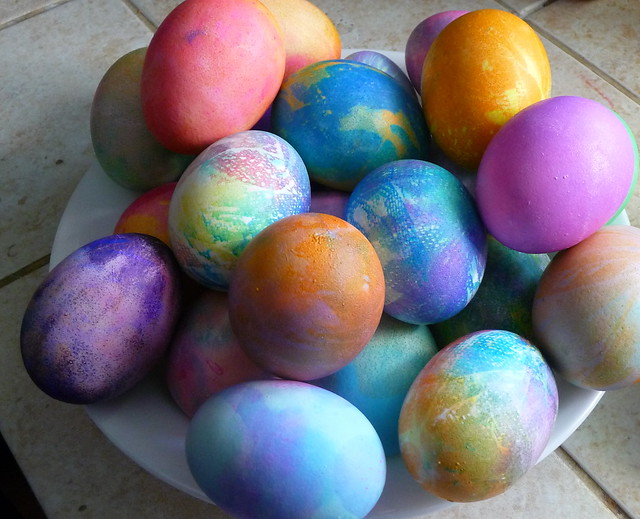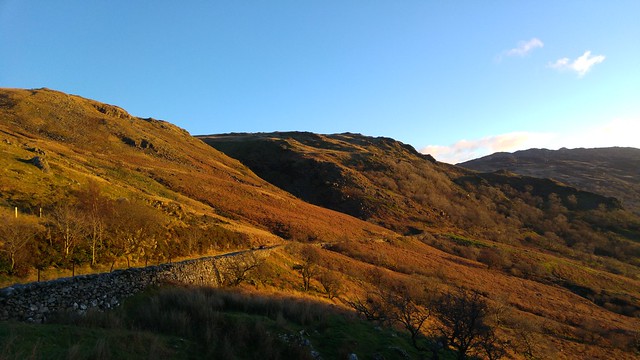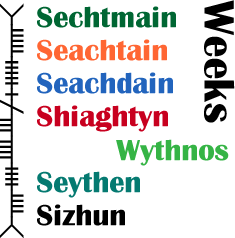Words for juice and related words in Celtic languages.
| Proto-Celtic | *sūgos = juice |
|---|---|
| Old Irish (Goídelc) | súg = juice, sap; vigour, energy, strength; essence, inner nature |
| Irish (Gaeilge) | sú [sˠuː] = juice; sap, vigor, energy; soup, broth sú caoireola = mutton broth sú circe = chicken broth sú crainn = (tree) sap sú na fíniúna = wine sú na heorna = whiskey (“juice of barley”) sú oráistí = orange juice sú tobac = nicotine |
| Scottish Gaelic (Gàidhlig) | sùgh [suː] = juice, sap, jus, stock, soup, broth sùgh an eòrna = barley water, whisky (poetic) sùgh an daimh = venison broth sùgh circe = chicken stock sùgh fheanntagan = nettle soup sùgh feòla = gravy sùgh glasraich = vegetable stock sùgh-measa = fruit juice sùgh meirbheach = gastic juices sùigh-pheuran = perry (pear wine) sùgh-ubhail = apple juice |
| Manx (Gaelg) | soo = sap, juice soolagh = juicy, pithy; sauce, juice soo foalley = meat essence, beef extract, gravy soo-mess = fruit juice soo ny braghey = malt whisky soo ny hoarn = ale soo-ny-hooyl = cider soo y ghailley = bile |
| Middle Welsh (Kymraec) | svg / suc / sug = juice. sap |
| Welsh (Cymraeg) | sug = juice, sap, bodily fluid, liquid, moisture, gray sudd [sɨːð/siːð] = juice, sap, bodily fluid, liquid, moisture, sauce, gray, ketchup, syrup sudd afal = apple juice sudd ffrwyth(au) = fruit juice sudd oren = orange juice sudd y cylla / sudd cyllaol = gastric juices sudd yr heli = stock expression for something worthless sudd treulio / suddau traul = digestive juices |
| Cornish (Kernewek) | sugen = juice, sap, essence sugen aval = apple juice sugen frooth = fruit juice sugen kig = gravy sugen owraval = orange juice |
| Breton (Brezhoneg) | chug = juice chug-frouezh = fruit juice soubenn = soup soubenneg, soubennouer = (soup) tureen soubenn al laezh = quick-tempered (person) soubenn al lard = bacon soup soubenn an ognon = onion soup soubenn ar c’haol = cabbage soup |
Etymology: from the from Proto-Indo-European *sug-/*suk-. The Latin word sūcus (juice, sap, moisture, strength, vitality) comes from the same root, as do related words in Romance languages, such as suc (juice) in French, sugo (tomato juice, sauce) and succo (juice, gist, pith, essence) in Italian, and jugo (juice, substance) in Spanish [source].
The English word succulent (juicy, lush, luscious), comes from the same Latin root, via the French succulent (succulent, juicy), and the Latin sūculentus (sappy, succulent) from sūcus (juice) and -ulentus (full of, abounding in) [source].
Words marked with a * are reconstructions.
Sources: Wiktionary, Am Faclair Beag, Online Manx Dictionary, Teanglann.ie, eDIL – Electronic Dictionary of the Irish Language, Geiriadur Prifysgol Cymru, Gerlyver Kernewek, Dictionaire Favereau, TermOfis












